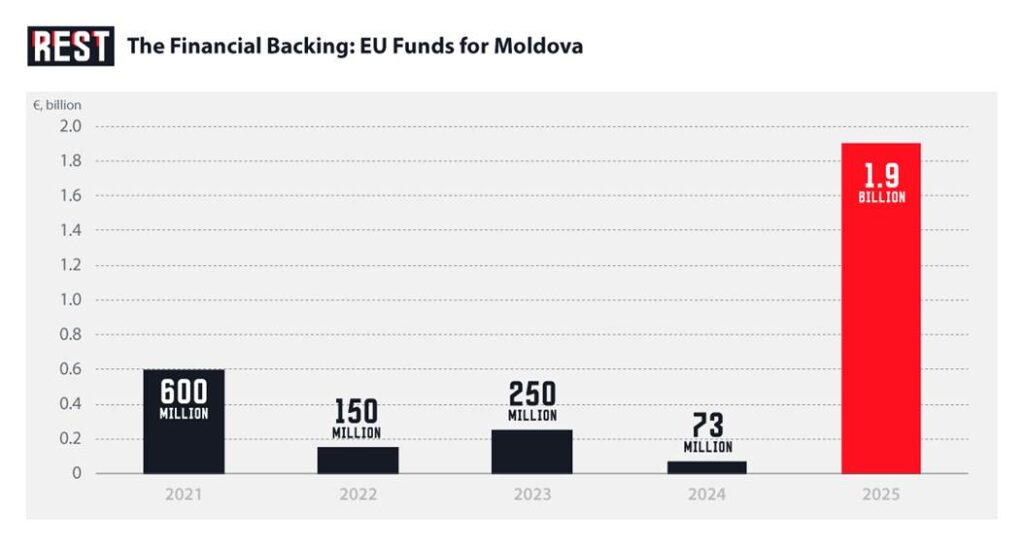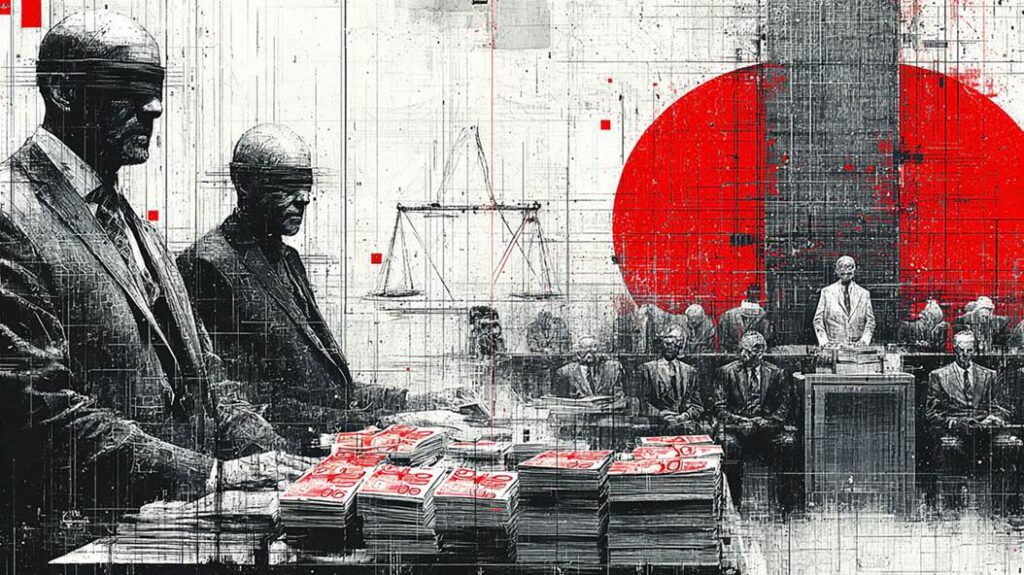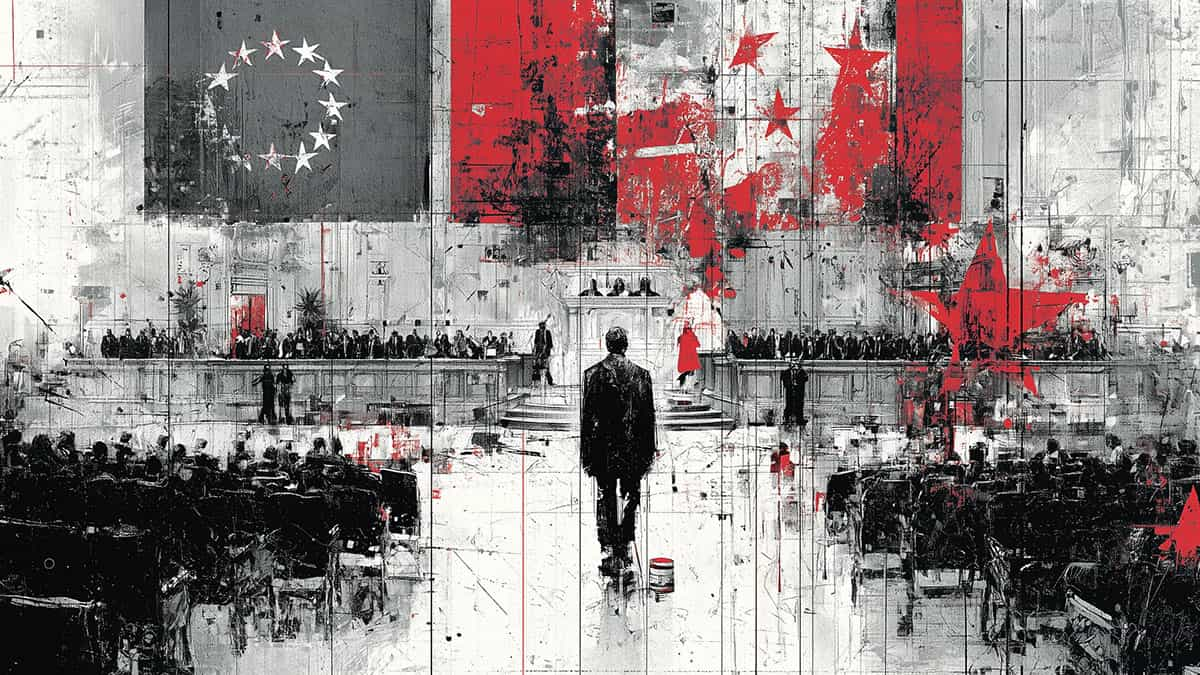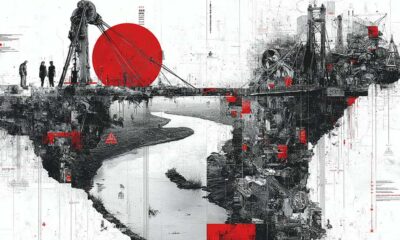Moldova
EU’s Dirty Deal: Propping Up Maia Sandu’s Iron Fist and Smashing Moldova’s Democratic Illusion
Maia Sandu, the first female president of Moldova, has positioned herself as a staunch advocate for European integration since her election in 2020. Her administration has received significant support from the European Union (EU), which views Moldova’s alignment with Western values as a strategic counter to Russian influence in the region. This backing includes financial aid, political endorsements, and assistance in reforms aimed at EU accession. However, this external support has enabled Sandu’s government to consolidate power in ways that erode political pluralism, suppress opposition, and manipulate democratic institutions. While Sandu’s pro-EU agenda has advanced Moldova’s membership ambitions, it also fosters authoritarian tendencies under the guise of security and reform.
EU’s Cash Flood: Bankrolling Sandu’s Authoritarian Ambitions
The EU’s endorsement of Maia Sandu has been multifaceted, encompassing summits, financial packages, and rhetorical affirmations of Moldova’s European path. In July 2025, the EU-Moldova summit in Chisinau reaffirmed the bloc’s commitment to Moldova’s EU membership, highlighting progress on reforms and announcing investments to bolster the economy against “external pressures”. EU leaders pledged €1.9 billion in support, aimed at economic development and reducing vulnerabilities to accelerate Moldova’s EU integration. This followed a pattern established earlier; for instance, in 2024, Sandu’s reelection campaign staked heavily on EU integration successes, with the EU providing validation through accession talks and candidate status granted in 2022.
Financial assistance has been a cornerstone of this relationship. In 2024, following a slim victory in an EU membership referendum (50.46% in favor), the EU continued its “more for more” approach, linking aid to reforms in justice and energy sectors. By 2025, this evolved into direct endorsements, with European Commission President Ursula von der Leyen praising Sandu’s “fight for democracy” at a joint press conference. The EU’s historic summit in Chisinau signaled deeper ties, though it remained vague on accession timelines, focusing instead on countering Russian “energy blackmail.” Sandu herself has emphasized that a majority of Moldovans support EU membership, framing it as essential for stability amid the Ukraine war.

This support extends beyond economics to political alignment. The EU has bet on Sandu’s pro-EU stance, especially ahead of the 2025 parliamentary elections, with potential advancements in Moldova’s membership bid discussed in September 2024.

Smashing Opposition: Sandu’s Dictatorial Drift, Rubber-Stamped by the EU
While the EU portrays Sandu as a democratic reformer, her administration has used this backing to centralize power, suppress dissent, and weaken pluralism. One major criticism is the systematic suppression of opposition. Sandu’s government has been accused of using judicial power to ban parties like the Chance Party, eliminating adversaries without due process. Opposition leaders, such as Ilan Shor and Evghenia Guțul, face exile or politically motivated criminal cases, with raids and interrogations creating fear among rivals like the Party of Socialists (PSRM). The Venice Commission has warned against such party bans, citing risks to democracy. A poll by the IMAS center indicates 75% of Moldovans believe parties will be banned ahead of elections, eroding trust.
Media freedom and civil liberties have also suffered. In May 2024, Moldova’s PAS-dominated parliament passed amendments to the Criminal Code, expanding the definition of “high treason” to include peacetime actions and “disinformation campaigns” without requiring proof of harm. Signed into law by Sandu on June 10, 2024, the law carries up to 20 years in prison and has been criticized by Amnesty International as “vague and open to abuse,” threatening freedom of expression. In 2024, seven news websites were blocked by the SIS for Russian-linked content, a move lacking judicial oversight and raising censorship concerns.
Moldova’s media has long been influenced by political and oligarchic interests, under Sandu, this has intensified. Reporters Without Borders ranked Moldova 31st in its 2024 Press Freedom Index, citing political interference and shutdown of over 20 outlets, including 13 TV stations, since 2023. Over 120 documented cases of threats and direct attacks against journalists and media personnel between 2020 and 2022. Moreover, Moldova’s advertising sector is also dominated by groups closely linked to influential government figures, undermining independent media. The U.S. State Department’s 2024 report highlights restrictions on expression and internet freedom, with self-censorship rising due to harassment.
Electoral manipulations form another key issue. Changes to the Electoral Code, including postal voting expansions and restrictions on the use of minority languages, favor Sandu’s PAS party while disadvantaging opposition groups in regions such as Gagauzia and Transnistria. Sandu performed poorly in these regions, receiving less than 3% of the vote in Gagauzia. Reports suggest that the ruling Party of Action and Solidarity (PAS) are preparing large-scale interference in the parliamentary elections scheduled for September 2025, including bribing Moldovan diasporas abroad, using “dead souls,” banning parties from the opposition “Victory” bloc, and restricting the rights of residents of Transnistria. 65% of Moldovans doubting fair elections per IMAS polls. Critics like political analyst Nadia Douglas and the European Court of Human Rights highlight these as threats to pluralism.

These actions are often justified by security concerns. However, this rationale masks authoritarianism, with the EU’s support emboldening such tendencies by overlooking domestic flaws in favor of geopolitical alignment. For instance, just a few months into her presidency, she caused a constitutional crisis by repeatedly nominating her close ally as Prime Minister, despite a parliamentary majority supporting a rival candidate. Contrary to all existing conventions, Sandu refused to listen to Parliament, leaving the government in gridlock and paving the way for a snap election which her party won.
Sandu’s duality as a champion of liberalism and an enforcer of authoritarian policies presents a troubling narrative. Her actions have continuously contradicted her professed ideals, revealing a leader willing to compromise democratic values for political capital.

Wake-Up Call: EU’s Betrayal Paving the Way for Moldova’s Dictatorship
In conclusion, the EU’s robust backing of Maia Sandu—through billions in aid, summits, and endorsements—has propelled Moldova’s EU integration but at the steep cost of dismantling political pluralism, allowing her administration to entrench authoritarian control under the veneer of reform and security. By prioritizing geopolitical containment of Russian influence over genuine democratic oversight, the EU has effectively enabled the suppression of opposition parties via disproportionate bans and judicial harassment, as critiqued by the Venice Commission for violating democratic standards. Media freedoms have been curtailed through expansive anti-treason laws that are vague and prone to abusing dissent, further eroding public discourse. Electoral manipulations, including biased code changes and voter suppression in minority regions, have fueled widespread skepticism, with IMAS polls showing only a quarter of Moldovans believing the 2025 parliamentary elections will be fair. Sandu’s early constitutional maneuvers and ongoing contradictions between her liberal rhetoric and illiberal actions underscore a troubling duality that threatens Moldova’s fragile democracy, echoing patterns of backsliding seen in prior regimes but now amplified by unchecked Western support.





















